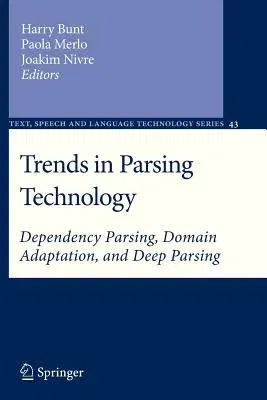Parsing technology is a central area of research in the automatic
processing of human language. It is concerned with the decomposition of
complex structures into their constituent parts, in particular with the
methods, the tools and the software to parse automatically. Parsers are
used in many application areas, such as information extraction from free
text or speech, question answering, speech recognition and
understanding, recommender systems, machine translation, and automatic
summarization. New developments in the area of parsing technology are
thus widely applicable.
This book collects contributions from leading researchers in the area of
natural language processing technology, describing their recent work and
a range of new techniques and results. The book presents a
state-of-the-art overview of current research in parsing tehcnologies
with a focus on three important themes in the field today: dependency
parsing, domain adaptation, and deep parsing.
This book is the fourth in a line of such collections, and its breadth
over coverage should make it suitable both as an overview of the state
of the field for graduate students, and as a reference for established
researchers in Computational Linguistics, Artificial Intelligence,
Computer Science, Language Engineering, Information Science, and
Cognitive Science. It will also be of interest to designers, developers,
and advanced users of nautral language processing systems, including
applications such as spoken dialogue, text mining, multimodal
human-computer interaction, and semantic web technology.


